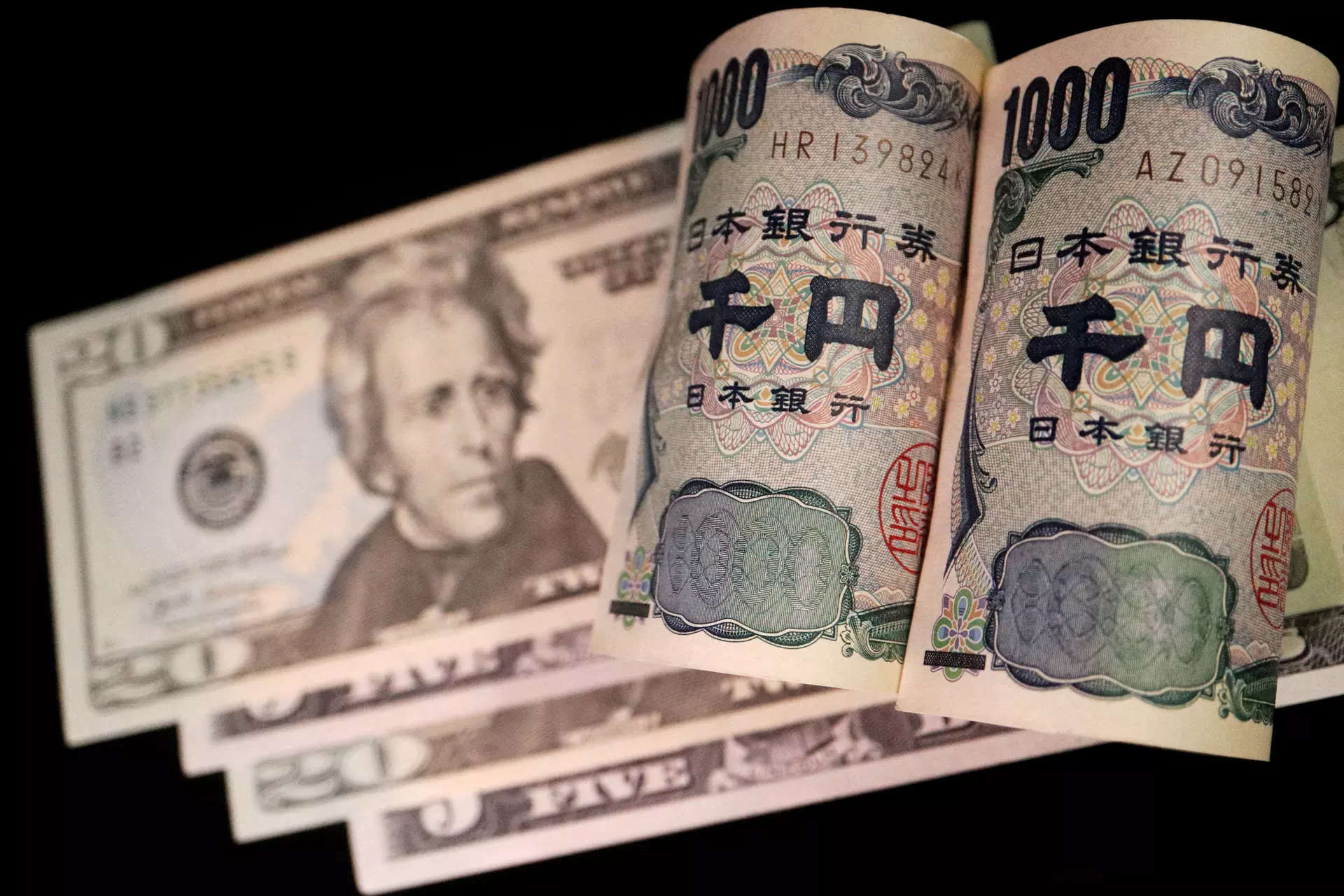Stocks hit by tech slump; yen flails at intervention zone
A 15% dive in shares of Meta in extended trading after the Instagram parent forecast lighter-than-expected current quarter revenue and higher expenses soured the mood, sparking a sell-off in U.S. tech and tech-related stocks.
fell on Thursday as disappointing earnings forecasts from Facebook parent hammered tech shares, while the yen's slump past 155 per dollar for the first time since 1990 raised the spectre of intervention from Tokyo.A 15% dive in shares of Meta in extended trading after the Instagram parent forecast lighter-than-expected current quarter revenue and higher expenses soured the mood, sparking a sell-off in and tech-related stocks.
The predictable hit to Asian tech stocks took MSCI's broadest index of Asia-Pacific shares outside Japan down 0.7%.
Japan's Nikkei slid 1.3%, while China stocks also fell, with the blue-chip CSI300 index down 0.3% and Hong Kong's Hang Seng Index 0.5% lower.
In an earnings-packed week, the tech bellwethers are in the spotlight, with Alphabet, Microsoft and Intel due to report later on Thursday.
"If Meta is a guide, it seems the market is simply not tolerant of inline - if you've had a good run through Q1 & Q2 you either blow the lights out, or the market takes its pound of flesh," said Chris Weston, head of research at Pepperstone.
Tech stocks had got a boost on Wednesday after Tesla said it would introduce "new models" by early 2025 using its current platforms and production lines.
Beyond corporate earnings, investor focus will be on the first quarter U.S. gross domestic product data on Thursday and personal consumption expenditures, the Fed's preferred inflation gauge, for March on Friday.
A hotter-than-expected consumer price inflation report for March had pushed back expectations of when the Fed will begin cutting interest rates, with markets pricing in a 70% chance of September being the starting point, CME FedWatch Tool showed.
Traders are pricing in 43 basis points of easing in 2024, drastically lower than the 150 basis points they anticipated at the start of this year.
The shifting expectations of U.S. rates have lifted Treasury yields and the dollar, casting a shadow on the currency market. Against a basket of currencies, the dollar was little changed at 105.75. The index is up over 4% this year.
The yen, which is sensitive to U.S. Treasury yields, has felt the brunt of the dollar's ascent and is down 9% this year, the worst performing G10 currency.
On Thursday, the yen was fetching 155.445 per dollar, having touched a 34-year low at 155.45 earlier in the session, breaching past the key 155 yen level that some traders had marked out as a line in the sand that would prompt Tokyo to take action.
The Bank of Japan (BOJ) has started its two-day rate-setting meeting on Thursday to discuss monetary policy, with expectations that the central bank will keep its short-term interest rate target unchanged.
The attention though will be on BOJ Governor Kazuo Ueda's comments as he tries to maintain a calibrated path to exiting ultra-easy rates without upending the currency.
The BOJ chief will be mindful of avoiding the episode of 2022, when his predecessor's dovish remarks triggered a yen plunge that forced Tokyo to intervene, spending an estimated $60 billion to defend the yen.
Kieran Williams, head of Asia FX at InTouch Capital Markets, said the dollar/yen pair looks to be trading roughly in line with relative interest rate spreads, suggesting the Ministry of Finance would be fighting strong headwinds.
"Should USD/JPY continue higher after the BOJ, officials could choose to take action, especially after Finance Minister Suzuki intimated that the environment for intervention was in place."
Japan's ruling party is not yet in active discussion on what yen levels would be deemed worth intervening in the market, though the currency's slide towards 160 to the dollar could prod policymakers to act, party executive, Takao Ochi, told Reuters.
In commodities, oil prices eased a bit as concerns about a potential slowdown in the U.S. economy outweighed worries over the risk of an expanding conflict in the Middle East.
U.S. crude fell 0.08% to $82.74 per barrel and Brent was at $87.99, down 0.03% on the day. Spot gold added 0.2% to $2,320.32 an ounce.
Source: Stocks-Markets-Economic Times
